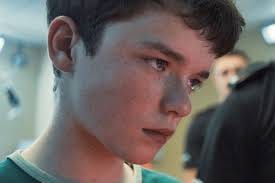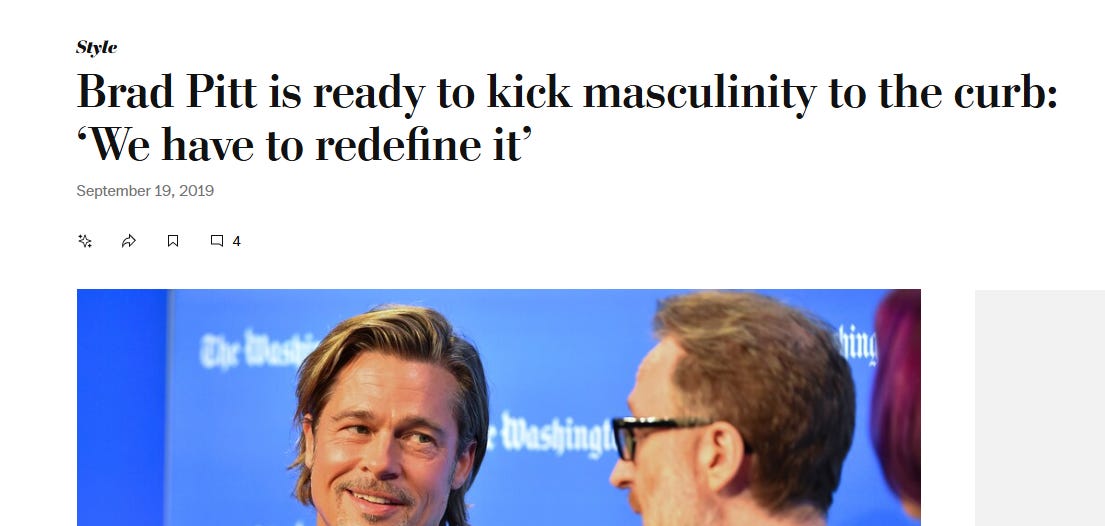When Fiction Becomes Propaganda: A Closer Look at Netflix's Adolescence
The Show Makes Multiple False Links and Assumptions about the Causes of Violence.
Film and television has increasingly been used to propagate ideologies and as a tool for social engineering. Adolescence, a Netflix series, has earned praise for its portrayal of a troubled teenage boy navigating the confusing terrain of identity, alienation, and masculinity in the digital age.
Many have described the show as brave, raw, and timely. And on the surface, it does appear to attempt a serious conversation about what it means to grow up male in today's world. But beneath the surface of this highly emotionally charged production lies a far more troubling message — one that deserves careful scrutiny.
A Show About Boys — Without Understanding Boys
The protagonist of Adolescence is a 13-year-old boy, portrayed as intellectually articulate, emotionally complex, and disturbingly absorbed in online subcultures.
In several scenes — particularly one where he is questioned by a psychologist — the boy speaks in terms far beyond what is believable for someone of his age. The boy’s dialogue involved complex themes of sexuality which is entirely inappropriate and unrealistic. Strangely, during the scene with the psychologist, the boy asks if it is OK to be talking about these subjects.
Not just the protagonist, but also other boys of the same age use dialogue which sounds more like the script of a 35-year-old social media pundit than the inner voice of a teenager. Making references to gender ideology, power dynamics, the manosphere, and “red pill” philosophy.
In the show, the protagonist becomes sexually frustrated by a lack of attention from girls, and becomes angry when a girl of this age uses emojis on social media that relate to incels (heterosexual men who blame women and society for their lack of romantic success). The protagonist finds this labelling as an incel so abhorrent that he stabs the girl to death.
It should be immediately obvious to everyone that this narrative arc is entirely unrealistic for a 13-year old boy. A 13-year old boy has not developed his sexuality, yet alone had sufficient life experience to go through a cycle of rejection multiple times that could be a precursor to the kind of hate presented in the show. There is no-way that a 13-year boy could reach this devastating position. The growth of the scrotum and testes is not complete until around 16/17 years old. Surely, that, at least, would be a prerequisite for total disillusionment with women?
At multiple times in the show the protagonist is shown to hate and resent women because of a lack of attention from women.

The often impeccable acting, strong cinematography, and the ultra-realistic long takes draw audiences in to believe the unbelievable. The problem is that most people have consumed this great work of fiction as being like a documentary. A mistake also made by the current UK prime minister.
Keir Starmer also makes a number of statements that are categorically false. He suggests that the issue described in the film is a rapidly growing problem. That’s simply not true.
Violent Crime Is Generally Not Committed By Incels
Despite what some people would like to believe, violent crime committed by individuals who identify as "incels" — involuntary celibates — is incredibly rare and represents a tiny fraction of overall violent crime. While the media has spotlighted a handful of high-profile cases involving men who were active in online incel communities, these incidents are statistical outliers. They are not representative of male behavior in general.
The FBI and other criminological bodies do not classify “incel-related” crime as a distinct category, precisely because it occurs so infrequently. Most violent crimes are not committed by men driven by ideological beliefs about gender, but rather by factors such as poverty, mental illness, substance abuse, interpersonal conflict, or gang involvement.
The danger of linking incels too casually with violent crime is that it distorts the real data and inflames moral panic. It also risks justifying discriminatory or alarmist portrayals of young men, especially those who are already struggling with social connection or mental health. Reducing such individuals to “potential threats” not only lacks empathy, it will further isolate them. But that might actually be the goal.
Links With Red-Pilling And The Manosphere
Adolescence makes casual and sweeping links between incels, being red-pilled, the manosphere, misogamy and violence. This is irresponsible and may reveal the true motivations behind the show. Being red-pilled of course makes reference to the film The Matrix, but it relates to a broad acceptance of the truth and a commitment to understanding the realities of the society in which we live. There is no real life connection between being red-pilled and incels. When Neo takes the red pill he does not become misogynistic.
More people are questioning the power structures within our societies, especially since COVID, and the influence that centralised power is having over our lives. This centralised power can be seen as analogous to “the Matrix”. It would be reasonable to expect that those in control of “the Matrix” would not want more people to question it.
Hence the erroneous links between being red-pilled, incels and violence. After watching Adolescence people will not want to be associated with any of these terms and will be directed away from learning the truth on a whole range of issues. Some people might say this sounds like conspiracy. Well it is. This is part of a wider conspiritoral objective to demoralise men and stamp out normal healthy masculinity. If you don’t believe me allow me to offer two further pieces of evidence.
Since the release of the show, a slew of articles from the corporate media (owned by “the Matrix”) have appeared to further slander men.
Some of these articles may be simply a reaction to the popularity of the show, but if that were true why are there no articles with a counterviewpoint, or a critique based on the actual evidence from society?
Adolescence does not explore masculinity in its full complexity. Masculinity it depicted in simplistic, pathologised terms. Male characters are either emotionally repressed, socially awkward, absent, or dangerous. Positive male role models are non-existent in the show. The nearest we get to a positive male role model is the police officer in charge of the investigation. But even this character has a broken relationship with his son. His son is afraid of him for reasons that are not given in the show.
There is no space in the narrative for healthy expressions of male identity. Near the end of the show, after we have been witness to the whole heart-wrenching series of events, the father of the 13-year old protagonist asks why his son couldn’t just be more like his sister - who is near perfect.
Produced With An Agenda
Adolescence is funded by Brad Pitt’s production company Plan B. Not only providing financial support but it has been reported that Brad Pitt “had his hands all over the groundbreaking British series”.
Brad Pitt has been on record multiple times during the last few years complaining about masculinity. Who knows why? But that seems to be his agenda now.
Several of the other producers of the Netflix show have also shown bias. Graham Walters is also involved in the show. His company is called Matriarch Productions. Graham said to Netflix:
“There was an incident where a young boy [allegedly] stabbed a girl. It shocked me. I was thinking, ‘What’s going on? What’s happening in society where a boy stabs a girl to death? What’s the inciting incident here?’ And then it happened again, and it happened again, and it happened again. I really just wanted to shine a light on it, and ask, ‘Why is this happening today? What’s going on? How have we come to this?’ ”
But as I said above, this kind of horrific incident is rarely associated with incels and most likely has never been committed by a 13-year old boy who’s become radicalised by masculine portrays on social media. I’m not sure how the producers did their research for the show.
The Danger Of Fiction That Feels Like Fact
Adolescence is, of course, a work of fiction. But that hasn't stopped it from being quoted and referenced as if it were a documentary case study. This is precisely what makes the show dangerous. When storytelling is emotionally compelling, audiences often absorb its messages passively — especially when those messages seem to confirm existing fears or biases.
The danger here lies not just in the show’s misrepresentation of young men, but in the cultural impact it may have. By presenting such a one-dimensional view of male identity, the show may actually deepen the very divisions it claims to expose. Boys and men watching it may feel misunderstood, attacked, or unfairly maligned. And the wider audience may come away with a simplistic and misleading picture of what it means to be a young male today.
Good fiction should challenge us. It should provoke thought, invite reflection, and help us to see the world from perspectives we might not normally consider. But it should not manipulate or mislead. Adolescence had the opportunity to tell a powerful story about boyhood, mental health, and identity in a changing world. Instead, it chose to pathologise masculinity and frame it as a threat.
That’s not just bad storytelling. It’s irresponsible.
I urge you to watch Adolescence or watch it again with the above points in mind and let me know what you think.







a good read, indeed. Thank you.